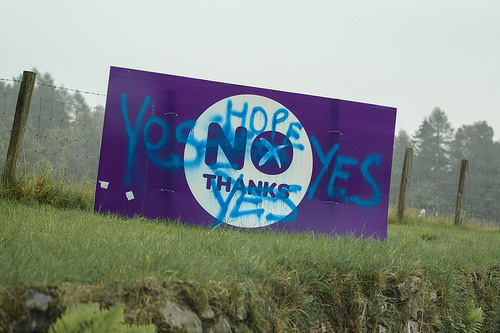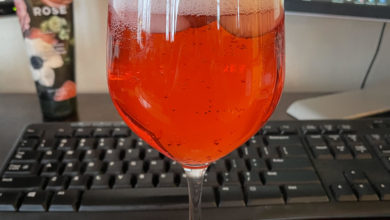Skepchick Sundaylies: Hobbies v. Crafts, Vaccines, Scottish Independence, and the End of the Forced Apology

Sunday Funny: SMF (via SMBC)
DBT Skills: The Calm Yo Tits Edition
Olivia provides the keys for interpersonal effectiveness.
The Physics Philes, lesson 114: We Got da Beats
Mindy discovers how physics drops some dope beats.
The Woman Who Saved Shakespeare and Helped Win Two Wars: Cryptanalyst Elizebeth Friedman (Women In Science 20)
Dale investigates the history of cryptoanalyst Elizebeth Friedman: “When World War I came to the United States, the armed forces simply did not know how to deal with the creation of effective codes, or the deciphering of enemy transmissions, and so took the unprecedented step of handing over sensitive cryptographic work to a civilian married couple who were at the time working at a farcical utopian intellectual community run by an eccentric millionaire. And thus begins the tale of American cryptography…”
Hobby? Craft? Survey!
Kim discusses the potentially gendered connotations of Hobbies vs. Crafting: “My first instinct was that hobbies are masculine and crafting is feminine. Crafting is things like: paper *crafting*, sewing, crochet, locker hooking, scrapbooking, knitting, and rug making. Hobbies are things like remote controlled airplanes, woodworking, and building models. These break down clearly along stereotypical gender interests. What do you think about hobbies versus crafting?”
NOVA Vaccines – Calling the Shots Review
Katie reviews the new vaccine documentary, Calling the Shots: “As skeptics, we know the importance of continuing to beat this dead horse of a subject [vaccines]. It’s one of the most important from a public health standpoint, and one of the most frustrating and infuriating on a personal level. We understand the facts about vaccination, what’s more important is how messaging should reach vulnerable populations.”
Movie Review: Lucy (en español)
Silvia watched Lucy so you don’t have to.
Introduction to Pseudoscience: The Placebo Effect (en español)
Skeptics always talk about the placebo effect, but not always correctly, so Elara takes time to explain exactly what it is.
Coming Out Stories: The Long Ride Home
Vince shares his coming out story.
The Horror of Math
Jodee wonders why so many people shut down the moment they come face to face with a little math.
Is There a Difference Between Teaching and Having an Impact?
As much as the lecture method has come under fire in recent years, Peter still thinks it has a unique ability to be inspirational.
Scottish Independence Part 3: Interview With A Pro-Union Scientist
The Scottish referendum is nearly upon us! Alasdair continues his series on the topic.
#SorryNotSorry — The End of The Forced Apology
Jenny tells a story about how her son has started to call out people for not being sincere when they say “sorry.” And he’s right.
11 Things I’m Going to Keep Saying in the Vaccine Debate … and 4 We Shouldn’t
Erich does a point-by-point takedown of yet another anti-vax blogger who doesn’t understand how vaccines work.
Please Don’t Slut Shame My Preschooler
Steph’s preschool-age daughter was just told that she has to wear shorts under her skirts. But why are we worried about preschoolers being “decent”?
Featured image credit: K.R. via Flickr





Oh, I’m going to have to take issue with SEVERAL parts of the Forced Apology stance at Grounded Parents. First off, her original take was very acceptable, that a parent forcing their child to apologize, even if the child doesn’t mean it sincerely, is probably no different from teaching the child please, thank you, shitting in a toilet, shaking hands, using utensils, sharing, etc. If you hurt someone, or hurt their feelings, on purpose or by accident, say you’re sorry. So the mother’s determination to harangue the school’s administration and teachers into not asking kids say they’re sorry is a bit solipsistic: “sure, I can ask my son to be insincere, but you can’t.” Schools act in loco parentis in many ways, and teaching kids to be polite when they wrong someone is one of those ways.
Secondly, her example of a misplaced apology when her kid’s transmission ended prematurely was borderline dumb. There’s nothing wrong with a sympathy apology. She may not have cared about seeing the final ten minutes, but expressing sympathy for his being upset is completely acceptable. I had a girlfriend who used to call this the difference between a Male Apology and a Female Apology: the man apologizes (or should) when he’s done something wrong, the female apologies if the other person feels bad. Teaching men to add the second sort to their emotional repertoire is a POSITVE thing.
Finally, the author completely sidesteps the whole issue of Non-Apology, so common among Libertarian/Misogynist pundits and politicians: “I’m sorry you got upset at the outrageous thing I said or did”. A friend of mine who did a dick-ish thing to another friend showed up at my place, and as he passed the other friend, he said “hey, I hear I owe you an apology”, and kept walking into the house. The other friend looked around at the rest of us sitting on the lawn chairs and asked: “does that count?” We showered him with shaking heads, nooooooooo.
I, on the other hand, see the harm of the forced apology. I have apologized to smooth things over and to be polite. For me and countless others I know, this has been used against us. I apologize, even though I was wronged, and it is thrown back in my face for months or longer. Someone close to me was nearly fired from his job over an apology his supervisor ordered. The company was downsizing and wanted excuses to fire union employees. The union rep had a meeting going over the employees who had been fired after writing apology letters and the letters (they were ordered to write) were used as evidence of wrongdoing. Apology letters are used as evidence against people in court. If you think someone might sue you one day, never apologize for anything. Needless to say, if a cop asks you to apologize to someone NEVER, EVER do it.
Sure, some people appreciate the polite apology. If I know someone does, then I will politely apologize. However, I find these are the exact people that never need polite apologies. They understand that sometimes people get on each others nerves. Vindictive people often demand apologies. My family, a few close friends and certain bosses get polite apologies if I think it will smooth things over. Nobody else gets them. I have been burned by this “be polite” BS too many times.
I have absolutely no problem with the “forced apology”, I also have no problem with a “forced apology acceptance”.
Good manners are taught, and (especially when you are a child and not used to concerning yourself with the feelings of others) are often going to be insincere when spoken by a child.
Learning when to say you are sorry and learning to accept an apology when given give children cues on when to put yourself in the shoes of others, and even if they don’t get that right away, as they get older they will.
What’s next? Maybe this kid won’t need to say “thank you” when someone goes out of their way to do something nice for him if he’s not sincerely “thankful”.